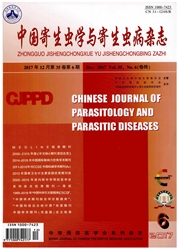
欢迎您!东篱公司
退出

 中文摘要:
中文摘要:
脑型疟(cerebral malaria)是疟疾感染的严重并发症,近年来其发生的免疫病理学机制受到极大关注。早期的研究认为,脑型疟的发生主要与感染疟原虫的红细胞和脑血管内皮细胞黏附,导致脑血管阻塞有关。然而,越来越多的证据表明,脑型疟的发生主要由疟原虫感染后引起的免疫病理反应所导致,与炎症因子的过量释放和免疫细胞在脑血管的浸润密切相关。本文就近年来脑型疟发生的免疫病理机制的研究进展作一综述。
 英文摘要:
英文摘要:
Cerebral malaria is a severe complication of malaria.Early studies suggest that cerebral malaria is re-lated to cytoadherence of parasitized red blood cells to the microvessel endothelium of brain.However,more and more evidence supported that the cause of cerebral malaria is uncontrolled inflammatory cytokines and infiltration of lymphocytes in brain microvessel.The article summarizes the research progress on immunological mechanism of cerebral malaria.
 同期刊论文项目
同期刊论文项目
 同项目期刊论文
同项目期刊论文
 期刊信息
期刊信息
